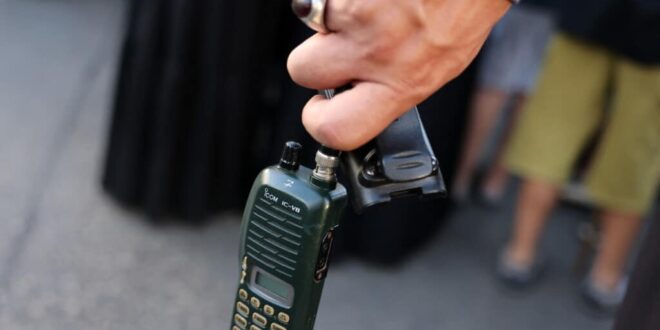Latest Developments
Citing two Iranian security officials, Reuters reported on September 23 that Iran’s Islamic Revolutionary Guard Corps (IRGC) has banned the use of all communications devices following the back-to-back pager and hand-held radio attacks against Hezbollah in Lebanon last week. According to one official, the IRGC is carrying out a widespread inspection of all its devices, communications and otherwise, most of which “were either homemade or imported from China and Russia.” Additionally, the IRGC is investigating mid- and high-ranking personnel to potentially expose Israeli agents. This effort “includes scrutiny of their bank accounts both in Iran and abroad, as well as their travel history and that of their families,” the Iranian official said.
Expert Analysis
“It’s no secret that Iranian security services have in the past been penetrated, compromised, or exploited by Israel or other foreign intelligence agencies. But the recent wave of communications attacks against Hezbollah has clearly spooked Tehran, causing a reassessment that is likely to introduce more challenges for the way the IRGC and its agents of influence communicate and coordinate. This is step number one toward a larger goal of making sure the tip of the spear of the world’s foremost state sponsor of terrorism is blunted out of fear and suspicion from within.” — Behnam Ben Taleblu, FDD Senior Fellow
“Israel’s repeated breaches of the regime’s security infrastructure has forced Tehran to reconsider its strategic calculus. The sophistication and frequency of these penetrations demonstrate that traditional countermeasures are insufficient, compelling Iran to reassess its defensive posture and potential responses to Israel.” — Janatan Sayeh, FDD Research Analyst
Twin Communications Attacks
Thousands of Hezbollah operatives were wounded in various parts of Lebanon on September 17 when the pagers they use to communicate exploded in what appeared to be an act of long-range sabotage. The casualties — which also included at least 12 fatalities — were the result of what a Hezbollah official quoted by Reuters described as the “biggest security breach” suffered by the Iranian-backed terrorist group during the almost year-old war with Israel. The next day, hand-held radios used by Hezbollah terrorists exploded across Lebanon, killing some 25 operatives and wounding hundreds more.
Assassination of Ismail Haniyeh in Tehran
A presumed Israeli strike in Tehran eliminated Hamas political chief Ismail Haniyeh in the early hours of July 31. Haniyeh was in Tehran to attend the inauguration of Iranian President Masoud Pezeshkian. Iran’s supreme leader, Ayatollah Ali Khamenei, who met in person with Haniyeh the previous day, warned that Israel had “prepared a harsh punishment for itself.” The IRGC also issued a statement threatening that “this crime committed by the Zionist regime will be met with a harsh and painful response from the powerful and vast resistance front, particularly from Islamic Iran.”
 Eurasia Press & News
Eurasia Press & News


